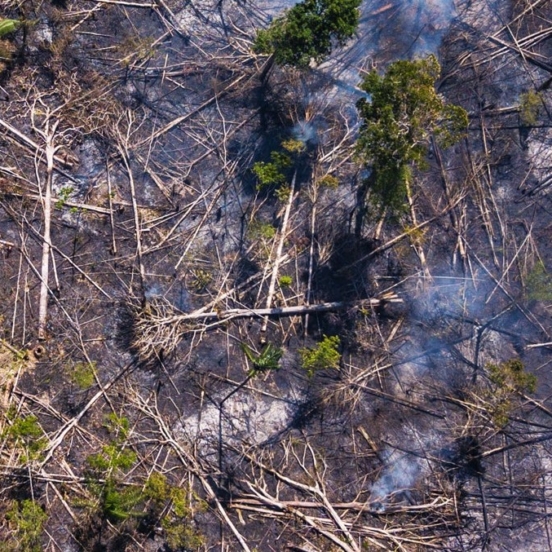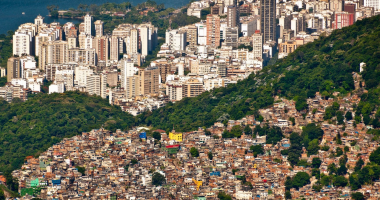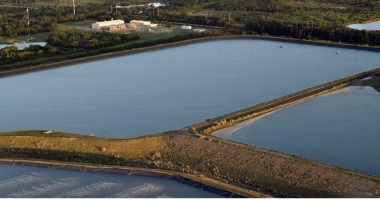Climate, Health and Equity Brief
Deadly humidity, disappearing forests and dangerous storms
March 12, 2021

The Climate, Health & Equity Brief is GMMB’s take on the week’s news on the current impacts of climate change. If you haven’t subscribed yet, you can do so by clicking here.
Hot Topic: Uninhabitable. Research out this week underscores several ways in which parts of the globe could become “uninhabitable” within our lifetimes unless we take immediate action to drastically reduce emissions. One study warns that the world’s tropical regions—which are home to 3.3 billion people—could become unlivable within the next decade unless temperature rise is limited to 1.5°C. As of today, we have already reached 1.1°C of warming. Passing the 1.5°C threshold would cause so-called “wet-bulb” temperatures, which factor in humidity, to surpass average human body temperature and prevent humans from cooling themselves by evaporating sweat.
Adding to this threat, new data out this week revealed that nearly two-thirds of the world’s tropical rainforest has been degraded or completely destroyed due to logging, clear-cutting and other land development activity. In 2019 alone, the rate of forest loss matched that of the 20 previous years, amounting one football field of forest loss every six seconds. More than half of this destruction has taken place in the Amazon and bordering rainforests and can be attributed in part to the devastating policies of conservative Brazilian president Jair Bolsonaro, who was elected in 2018 and has severely weakened environmental enforcement in the region. The destruction of earth’s forest—which is a major carbon-storing sink—is a significant contribution to planet-warming emissions, and the degraded land presents major risks to wildlife, which in turn exacerbate threats to the health of humans and the planet.
Yet another report underscores the impact of warming temperatures on hurricane activity. Though scientists have long attributed storm variability in the Atlantic Ocean to naturally occurring oceanic cycles, the report found that human-induced, industrialization-driven climate change may in fact be the real driver. As temperatures continue to rise, this has major implications for future weather patterns. Last year’s U.S. hurricane season broke virtually all records, and there is every indication that a continued rise in planetary temperatures will only lead to even more extreme and deadly storms.
Finally, a fourth study out this week shows what it will take to curb these growing threats. In 2020, global COVID-19 lockdowns resulted in a seven percent drop in emissions. That decrease must now be achieved every two years between now and 2030 to limit warming to between 1.5°C and 2°C—a tall order as the entire planet considers how to build back better following the global pandemic that has claimed more than 2.6 million lives.
— Matt & Traci, GMMB
Feel like you’re missing issues? Don’t forget to add CHandEBrief@gmmb.com to your approved senders list.
Health
A new study found that if the world fails to limit temperature rise to 1.5°C, tropical regions in Africa, Central and South America and Southeast Asia—home to 3.3 billion people—could become unlivable due to dangerous levels of heat and humidity. (The Guardian)
A new report revealed that two-thirds of the world’s tropical rainforest—which serves as a major carbon sink—has been degraded or completely destroyed due to logging and land conversion. (Reuters)
Despite long-held scientific beliefs that a natural warming and cooling cycle influences hurricane activity in the Atlantic Ocean, a new paper revealed that human-induced climate change may in fact be the real driver behind storm variability. (CBS News)
New research found that emissions must decrease by seven percent—the equivalent of reductions during global COVID-19 lockdowns—every two years until 2030 to limit temperature rise between 1.5°C and 2°C. (The Guardian)
A recent study analyzing hospital admissions in Southern California between 1999 and 2012 revealed that particulate matter from wildfire smoke resulted in 10 times as many respiratory-related hospitalizations as other types of pollution. (NPR)
Transitioning all new heavy-duty trucks, buses and vehicles in the U.S. to 100 percent electric by 2040 would save more than 57,000 lives and produce almost half a trillion dollars in health benefits by mid-century, according to a new report. (CleanTechnica)
Politics & Economy
Former secretary of the North Carolina Department of Environmental Quality
Michael S. Regan was confirmed as EPA administrator this week in a bipartisan, 66-34 Senate vote. Known for his “tenacity and willingness to reach across the aisle,” Regan is the first Black man to hold the position in the agency’s 50-year history and is now tasked with rebuilding the agency that has lost thousands of employees under the Trump administration. (The New York Times)
Republican attorneys general from twelve states are suing President Biden over his executive order for federal agencies to calculate the “social cost of carbon,” alleging that the president is overstepping his power by attempting to regulate emissions. (USA Today)
A new report found that at least 22 countries have undermined conservation efforts for protected areas during the COVID-19 pandemic by weakening environmental protections and cutting jobs for rangers and anti-poaching patrols. (Reuters)
Equity
Approximately $5 billion of the $1.9 trillion stimulus package passed this week will go to disadvantaged farmers, a quarter of whom are black, to provide debt relief, grants and other forms of assistance to acquire land. (The Washington Post)
Action
The Energy Department has revived a loan program halted by the previous administration that will provide up to $40 billion in funding for clean-energy projects and renewable technology development. (AP News)
Jeff Bezos pledged this week to spend all $10 billion he invested in the Bezos Earth Fund within the next 10 years and reemphasized the fund’s focus on advancing environmental justice and the development of technologies to mitigate climate change. (AP News)
Petaluma, California became the first U.S. city to permanently ban new gas stations and pumps this week as part of its broader goal to achieve net-zero carbon emissions by 2030. (Our Daily Planet)
Kicker
In celebration of this week’s International Women’s Day, check out this list of 25 women driving climate action around the world.
Quote
“We will be driven by our conviction that every person has the right to clean air, clean water and a healthier life—and we’ll pursue that together.”
-Michael Regan, EPA administrator

)





